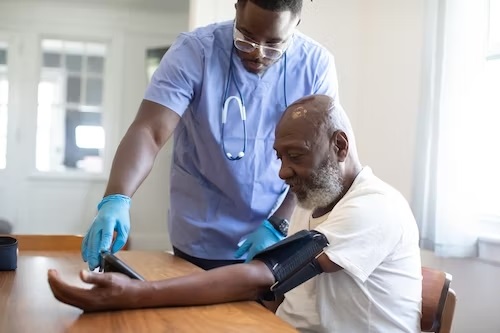
@ShahidNShah


Innovation is often hailed as the panacea to many of the challenges faced by industries, and healthcare is no exception. The promise of breakthrough technologies, streamlined processes, and pioneering solutions holds immense allure. However, without a profound understanding of the expectations surrounding these innovations, their real-world integration can often fall short of their potential. Herein lies the value of continuous education and training, ensuring teams are adept at both eliciting and meeting the multifaceted expectations of innovation.
Before delving into the significance of training, it’s essential to grasp the pivotal role expectations play in the innovation process. Every stakeholder, from patients and healthcare providers to administrators and technologists, brings a set of anticipations to the table. These can range from better patient outcomes and reduced costs to more efficient workflows and enhanced data security.
Yet, these expectations aren’t always overtly expressed or understood. Discrepancies between anticipated results and the reality of innovation outcomes can lead to disillusionment, resistance to adoption, and even the potential abandonment of promising innovations.
The importance of training and workshops in the innovation landscape cannot be overstated. These sessions play a pivotal role in establishing a common ground, allowing teams to come together, discuss, and collaboratively define their expectations from innovations. This collaborative approach ensures a unified vision, mitigating the risks of misaligned goals. Furthermore, as the healthcare domain witnesses rapid advancements, there’s a pressing need to bridge knowledge gaps. Training sessions stand as the answer, ensuring that every member is abreast with the latest trends, tools, and best practices. Beyond the hard technicalities, there’s a softer yet crucial aspect of innovation—communication. It isn’t just about grasping technical specifications or clinical results; effective communication is at its heart. Workshops tailored to enhance communication skills empower teams to adeptly extract, understand, and manage the myriad expectations of stakeholders. Moreover, in the ever-fluctuating realm of healthcare innovation, adaptability is a prized trait. Training initiatives foster this adaptability, prepping teams to seamlessly pivot in the face of new data, unexpected challenges, or evolving expectations.
Effectively training teams in the realm of innovation expectations necessitates a blend of practical approaches. Delving into real-world examples through case study analysis furnishes teams with tangible insights, giving them a grasp of both the successes and pitfalls in managing innovation. The power of passive learning pales in comparison to the lasting impact of interactive workshops. By integrating role-playing, mock innovation scenarios, and gamified experiences, teams can deeply internalize the principles of managing expectations. However, training shouldn’t be a static endeavor; it’s essential to weave in continuous feedback loops, ensuring the training content remains relevant to both the team’s evolving needs and the ever-shifting industry landscape. Enriching the training regimen with guest sessions by industry stalwarts, innovation trailblazers, or even experts from diverse sectors can add layers of depth, broadening the learning spectrum for the team. Furthermore, leveraging cutting-edge technologies, be it virtual reality or augmented reality, can elevate training modules, making them more immersive. Such tools can recreate real-life scenarios, offering teams a practical, hands-on approach to navigating and mastering innovation expectations.
Prioritizing and investing in continuous training reaps manifold benefits for organizations. Teams, when armed with the requisite skills and knowledge to tackle the intricacies of innovation expectations, often exude heightened morale, feeling both confident and empowered in their roles. This proficiency in managing expectations paves the way for greater stakeholder satisfaction. Patients experience improved care outcomes, while healthcare providers relish more streamlined operational processes. Furthermore, a clear understanding of expectations from the get-go enables a more judicious allocation of resources, be it time, funds, or workforce. And at the heart of it all, with a well-trained team at the helm, the journey of innovations from mere concepts to successful real-world applications is markedly smoother, leading to enhanced success rates.
Kaiser Permanente, a leading healthcare company, faced a challenge: they sought to enhance the quality and efficiency of their cancer care. Their solution was the “Innovation in Cancer Care” training program, designed to familiarize employees with avant-garde technologies and techniques aimed at bolstering cancer treatment. This included leveraging artificial intelligence to pinpoint patients at heightened risk for cancer, deploying virtual reality to alleviate pain experienced by patients during treatments, and expanding the reach of care with telemedicine, eliminating geographical barriers. The outcomes were commendable. With the integration of artificial intelligence, misdiagnosis rates plummeted by 20%. Virtual reality interventions slashed pain experienced during treatments by half, and thanks to telemedicine, there was a 30% decline in patients needing to commute for care. This success story underscores the transformative potential of training programs in catalyzing innovation within the healthcare domain.
Yet, the saga of healthcare innovation doesn’t end here. The industry is buzzing with groundbreaking developments like surgical robots, wearable devices monitoring patient health metrics, disease treatment through gene therapy, and the crafting of bespoke medical devices using 3D printing. As we navigate the future of healthcare, it’s evident that the horizon holds an array of even more dynamic and innovative solutions.
The healthcare sector stands at an exciting juncture, with innovations promising transformative changes. Yet, the bridge between theoretical promise and real-world success is paved with clear, well-managed expectations. Continuous training and workshops aren’t mere organizational checkboxes; they’re pivotal tools that equip teams to navigate the nuanced world of innovation expectations, ensuring that the future of healthcare is as bright as its potential promises.
The adoption of digital technology in the healthcare sector isn’t merely a trend—it’s a monumental shift. As hospitals globally transition to digital platforms, the overarching question …
Connecting innovation decision makers to authoritative information, institutions, people and insights.
Medigy accurately delivers healthcare and technology information, news and insight from around the world.
Medigy surfaces the world's best crowdsourced health tech offerings with social interactions and peer reviews.
© 2025 Netspective Foundation, Inc. All Rights Reserved.
Built on Jul 18, 2025 at 12:24pm